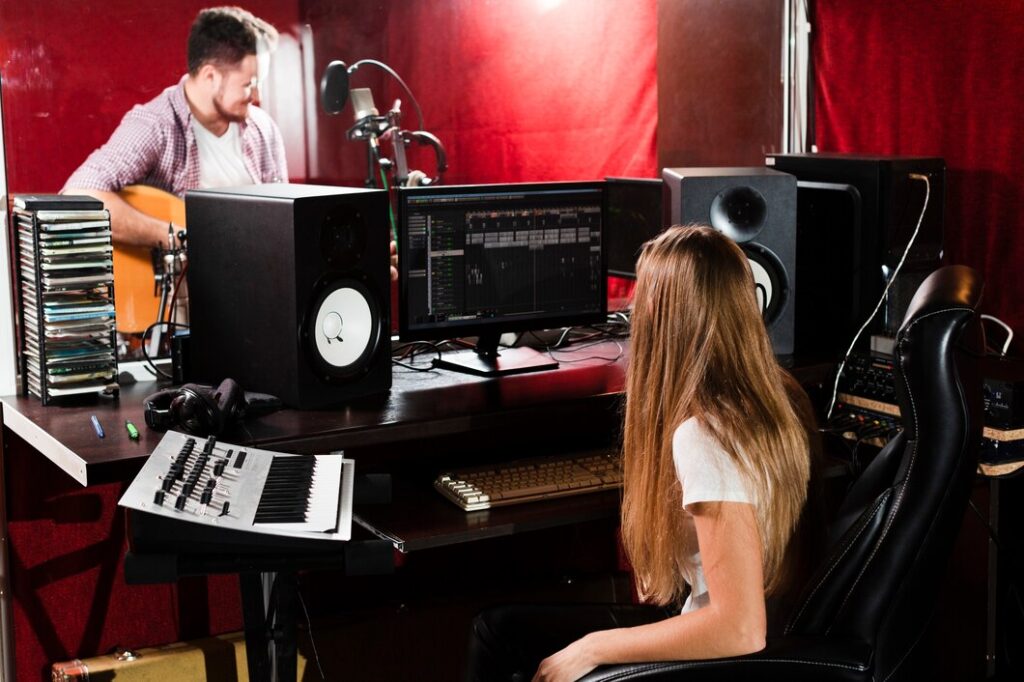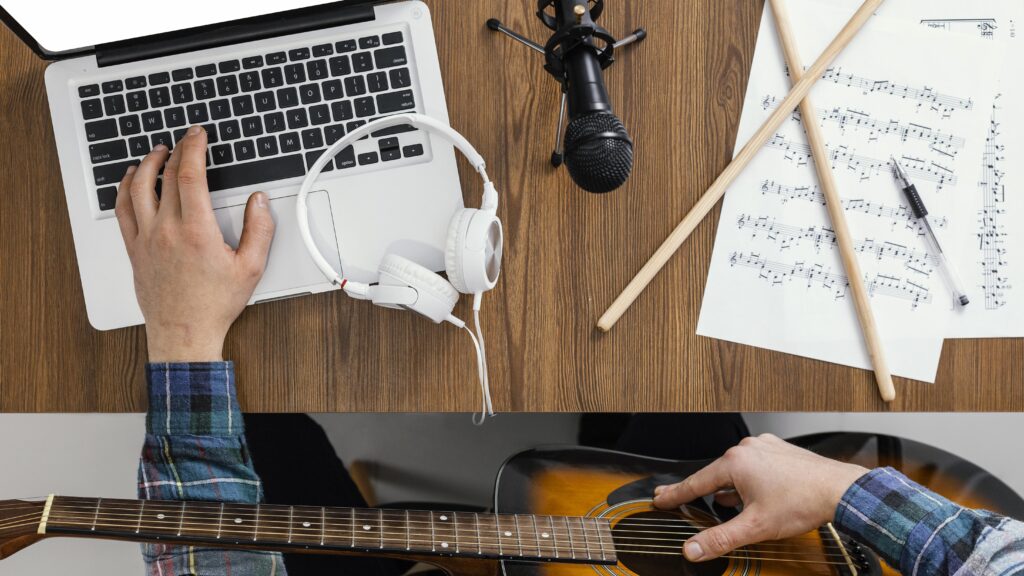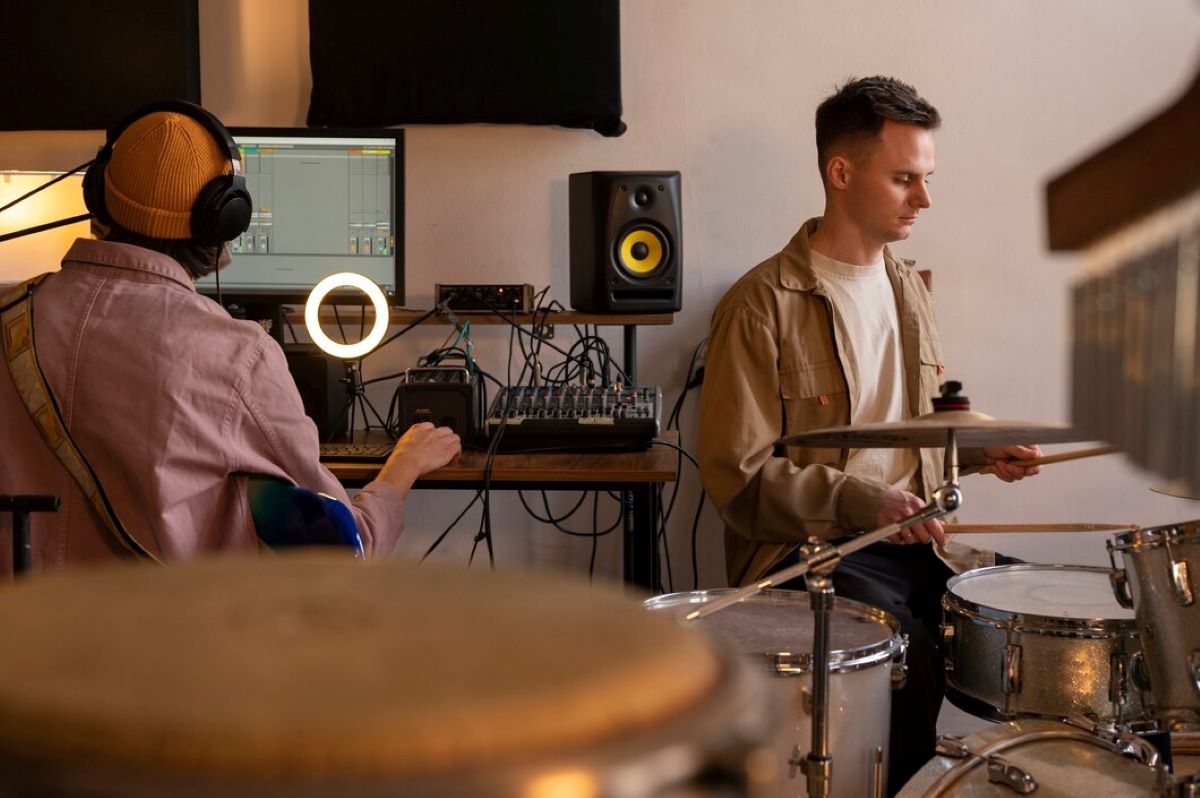The quickest way to find a studio space is to find and rent a former studio. Sadly, most engineers and musicians are not business people
Table of Contents
In the vibrant world of music, owning high-quality equipment or a well-designed studio space can be a significant asset. However, these assets often sit idle when not in use. Renting out your music equipment or studio space can generate a steady income stream and foster connections within the music community. This guide will explore innovative strategies to rent your music equipment or studio space effectively, covering everything from understanding the market to marketing and managing rentals.
Understanding the Market

Before diving into the rental business, it’s crucial to understand the market. Here are some steps to get started:
- Research Demand: Identify who needs music equipment or studio space. Are there local bands, independent artists, or music students looking for rentals? Understanding your target market helps tailor your offerings to meet their needs.
- Analyze Competitors: Look at existing rental services. What equipment and facilities do they offer? How much do they charge? Identifying gaps in the market can help you offer something unique.
- Set Realistic Goals: Determine your rental income goals. Consider factors like equipment depreciation, maintenance costs, and competitive pricing when setting your rental rates.
Preparing Your Equipment and Studio Space
Once you have a clear understanding of the market, it’s time to prepare your equipment and studio space:
- Inventory and Assessment: Create a detailed inventory of all the equipment you plan to rent out. Assess their condition and make any necessary repairs. Ensure that all equipment is fully functional and safe to use.
- Organize Your Studio: If you’re renting studio space, ensure it’s clean, organized, and inviting. Set up different zones for recording, mixing, and relaxing to create a professional atmosphere.
- Upgrade and Maintain: Regularly maintain and upgrade your equipment to keep it in top condition. Investing in high-quality gear can attract more clients and allow you to charge premium rates.
Legal and Financial Considerations

Renting out your equipment or studio space involves several legal and financial considerations:
- Insurance: Obtain comprehensive insurance for your equipment and studio space. This protects you against theft, damage, and liability in case of accidents.
- Contracts and Agreements: Draft clear rental agreements outlining terms and conditions. Include details like rental duration, payment terms, security deposits, and liability clauses.
- Business Structure: Decide on a business structure, such as a sole proprietorship or LLC. Register your business and comply with local regulations and tax requirements.
Marketing Your Rentals
Effective marketing is key to attracting clients. Here are some innovative marketing strategies:
- Online Presence: Create a professional website showcasing your equipment and studio space. Include high-quality photos, detailed descriptions, and client testimonials.
- Social Media: Use social media platforms like Instagram, Facebook, and TikTok to reach a broader audience. Share engaging content, such as behind-the-scenes looks at your studio, client success stories, and promotional offers.
- Music Community Involvement: Engage with the local music community. Attend music events, sponsor local bands, and collaborate with music schools to increase your visibility.
- SEO and Online Listings: Optimize your website for search engines and list your rentals on online marketplaces like Craigslist, Reverb, and specialized music rental platforms.
Managing Rentals

Efficient management of rentals ensures a smooth operation and satisfied clients. Here’s how to do it:
- Booking System: Implement an online booking system to streamline reservations. This allows clients to check availability, book rentals, and make payments easily.
- Customer Service: Provide excellent customer service. Be responsive to inquiries, offer flexible rental options, and provide support during the rental period.
- Feedback and Improvement: Collect feedback from clients and continuously improve your services. Address any issues promptly and make necessary adjustments to enhance the rental experience.
Innovative Ideas for Renting Music Equipment and Studio Space
Here are some unique ideas to differentiate your rental service:
- Membership Programs: Offer membership programs with benefits like discounts, priority bookings, and exclusive access to new equipment.
- Workshops and Classes: Host music workshops and classes in your studio. This not only generates additional income but also attracts potential renters who may want to use your equipment and space.
- Collaborations with Artists: Partner with local artists to create collaborative packages. For example, offer recording sessions with a well-known producer or special rates for bands who want to record together.
- Pop-Up Studios: Set up pop-up recording studios in unique locations, such as festivals, parks, or urban spaces. This can attract a diverse clientele and create buzz around your services.
- Virtual Studio Tours: Create virtual tours of your studio space. This allows potential clients to explore your facilities online and make informed booking decisions.
- Package Deals: Offer package deals that include equipment rental, studio time, and additional services like mixing, mastering, or photography.
- Loyalty Programs: Implement loyalty programs to reward repeat clients with discounts, free hours, or exclusive access to new gear.
Case Studies and Success Stories

Learning from others’ experiences can provide valuable insights. Here are a few case studies of successful music equipment and studio rental businesses:
- Local Studio Success: A small local studio doubled its bookings by offering flexible rental hours and collaborating with a local music school for student discounts.
- Innovative Equipment Rental: An equipment rental business saw a 30% increase in revenue by introducing a mobile app for easy bookings and providing personalized rental packages for different music genres.
- Community Engagement: A studio in a mid-sized city grew its client base by hosting monthly open mic nights and providing free recording sessions for local talent.
Things You Should Know
Renting out your music equipment or studio space can be a lucrative and rewarding venture. By understanding the market, preparing your assets, navigating legal and financial considerations, marketing effectively, and managing rentals efficiently, you can build a successful rental business. Embrace innovative ideas to stand out from the competition and continuously improve your services to meet the evolving needs of the music community.
FAQs
Q1: How much should I charge for renting my music equipment or studio space?
A1: Pricing depends on various factors, including the quality of your equipment, the demand in your area, and your target market. Research competitor pricing and adjust based on your unique offerings and costs.
Q2: What type of insurance do I need for renting out music equipment?
A2: Obtain comprehensive insurance that covers theft, damage, and liability. Consult with an insurance provider specializing in equipment rental businesses to ensure adequate coverage.
Q3: How can I attract more clients to my studio space?
A3: Utilize online marketing, engage with the local music community, offer unique packages and services, and provide excellent customer service to build a strong reputation and attract more clients.
Q4: What should be included in a rental agreement?
A4: Include details such as rental duration, payment terms, security deposits, liability clauses, equipment condition, and maintenance responsibilities to ensure clear communication and protect both parties.
Q5: How can I ensure my equipment is well-maintained?
A5: Regularly inspect and maintain your equipment, schedule professional servicing when needed, and provide clear usage instructions to renters to minimize wear and tear.
By following this comprehensive guide, you can successfully rent your music equipment or studio space, create a sustainable income stream, and contribute to the growth and vibrancy of the music community.

1 thought on “How to Rent Your Music Equipment or Studio Space: Top 7 Simple Strategies”